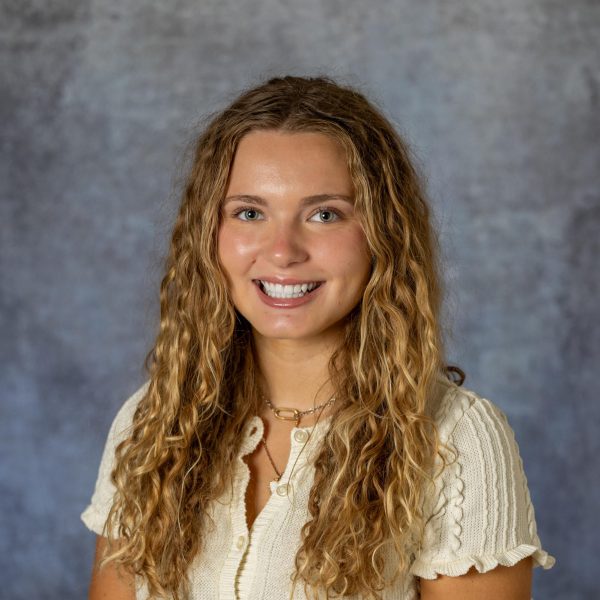Sen. Tammy Baldwin, D-Wisconsin, held a roundtable and Sen. Elizabeth Warren, D-Massachusetts, held a rally Monday, June 24, focusing on reproductive justice. The events coincided with the second anniversary of the Supreme Court decision Dobbs, which overturned the landmark abortion rights case Roe V. Wade.
Here are some key takeaways from the two events.
Healthcare professionals and medical students are concerned about abortion restrictions
At Monday night’s rally, University of Wisconsin medical student Laurie Lapp raised concerns about the implications abortion bans may have on medical professionals.
“I don’t think people realize that when you take away access to abortion, you take away access to abortion providers, and the people who provide abortion care are also the people who deliver babies, they’re also people who cure your cervical cancer,” Lapp said.
Some states under a total abortion ban have lost obstetricians and gynecologists, leading to statewide closures of obstetric hospitals, according to The Associated Press. In Idaho, the number of obstetricians decreased from 227 in 2022 to about 176 in 2023.
Lapp said further restrictions on abortion and reproductive rights could impact her future career as an OB-GYN.
“The question in my mind for most of my time in medical school thus far has been what’s the state that I can practice in,” Lapp said. “Now with the threat of a national ban, it hits me every day that there’s nowhere safe.”
State vs. Federal abortion access
After the overturning of Roe v. Wade, Wisconsin residents lacked access to abortion for fifteen months until Planned Parenthood resumed offering abortion services in September 2023.
At the roundtable, several women described their experiences traveling to other states for abortion care or access to contraceptives during the 15 months abortion was illegal in Wisconsin, describing it as a completely different world.
One woman attending Monday’s rally, Amanda Zurawski, shared her experience with strict abortion laws in Texas. Zurawski became involved in reproductive rights advocacy after undergoing an emergency induction abortion due to prelabor rupture of membranes at 18 weeks pregnant.
Zurawski was initially denied medical care for her condition, which led to a diagnosis of sepsis. Following her emergency surgery, one of Zurawski’s fallopian tubes closed, forcing her and her husband to turn to IVF. Zurawski expressed concern about the future of her reproductive rights if there are restrictions on IVF
“Because of what happened to me, my husband and I are still trying to build our family and we have to use IVF, we have to use a surrogate,” Zurawski said. “These are things that we know are on the line this year.”
State Sen. Dianne Hesselbein, D-Middleton, and State Rep. Lisa Subeck, D-Madison, both expressed frustration they were unable to bring any pro-reproductive rights bills to the floor during the past legislative session.
Despite a stalled state legislature, federal legislators in Congress have successfully passed certain legislation to increase access to abortion and assisted reproductive technology. For example, the Protecting Service Members and Military Families’ Access to Reproductive Care Act of 2023 authorizes the Department of Defense to grant active Armed Forces access to non-covered reproductive healthcare.
This issue motivates young voters
Jessica Mackler, President of Emily’s List — an organization promoting pro-abortion and reprodcutive rights women in elections — expressed her optimism for the future at the roundtable.
“I think I’m also so encouraged in this moment and determined in this moment because we’ve also seen that when we put this choice [abortion access] in front of voters and we explain what the stakes are around reproductive freedom, that they show up for us,” Mackler said.
In a 2022 Wisconsin Supreme Court race that focused heavily on abortion, Judge Janet Protasiewicz outperformed Gov. Tony Evers’ results from the 2022 gubernatorial election in wards containing college campuses, including the University of Wisconsin.
“There is no more important election in our lives when it comes to reproductive freedom than the election that we have in front of us,” Mackler said. “For students across America and young women, young people this is an opportunity to show up and demonstrate that reproductive freedom matters.”



